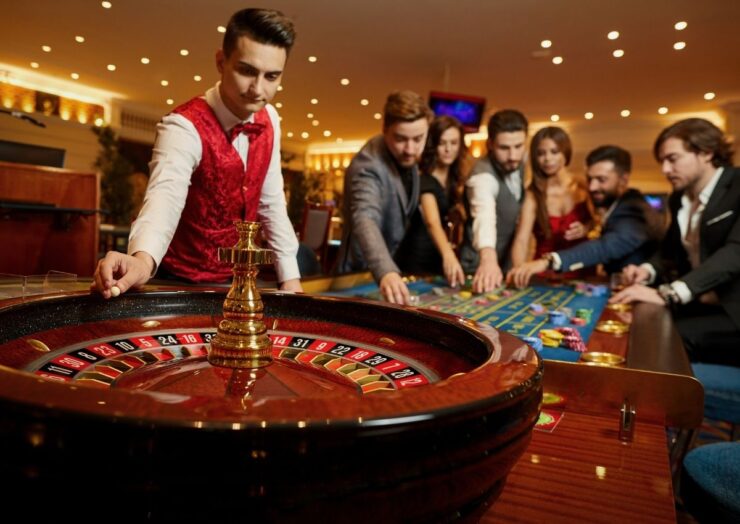Embarking on the riveting world of casino entertainment, individuals occasionally find themselves facing an unexpected roadblock—being banned from a casino. A casino ban isn’t merely a denied entry; it’s a disruption to the very fabric of the gaming experience. The impact reverberates beyond the immediate inconvenience, affecting the individual’s social, recreational, and potentially financial spheres.
The law aspect is so important that even on digital platforms like the one with Betfinal review take it into consideration.
This inquiry leads us into the intersection of personal rights and casino policies. Delving into the legal aspects, we dissect the reasons behind bans, whether for suspected misconduct or in adherence to responsible gaming initiatives. The article scrutinizes the gray areas of casino bans, shedding light on the challenges individuals face when contemplating legal action.
Decoding Casino Bans: Unveiling the Reasons and Legal Underpinnings
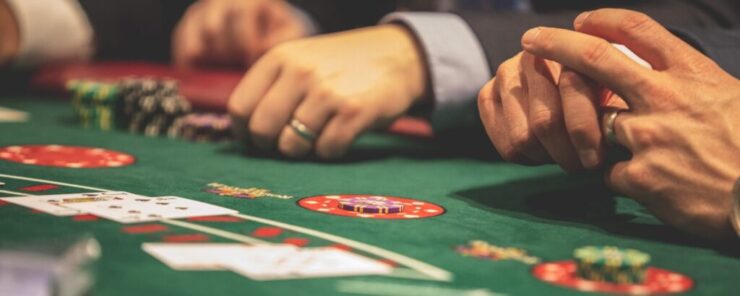
In the intricate world of casinos, bans on individuals are not arbitrary decisions but result from a web of considerations.
Casinos enforce bans for a spectrum of reasons, ranging from suspected misconduct to concerns related to responsible gaming practices. Misbehavior, fraud, or disruptive conduct are often grounds for immediate exclusion. However, the legal grounds for banning extend beyond individual actions, encompassing the broader framework of responsible gaming policies.
The legal standing of casino bans is rooted in the establishment’s right to maintain a safe and secure environment. Casinos must adhere to strict regulations, and patrons can be banned if they pose a threat to the well-being of themselves or others. This legal underpinning is crucial in understanding the dynamics between the rights of the casino and the rights of the individual.
Responsible gaming policies emerge as a cornerstone in this discussion. Casinos, recognizing their role in fostering a secure gaming environment, implement policies that aim to protect individuals from the adverse effects of excessive gambling.
Analyzing Cases of Individuals Suing Casinos for Bans
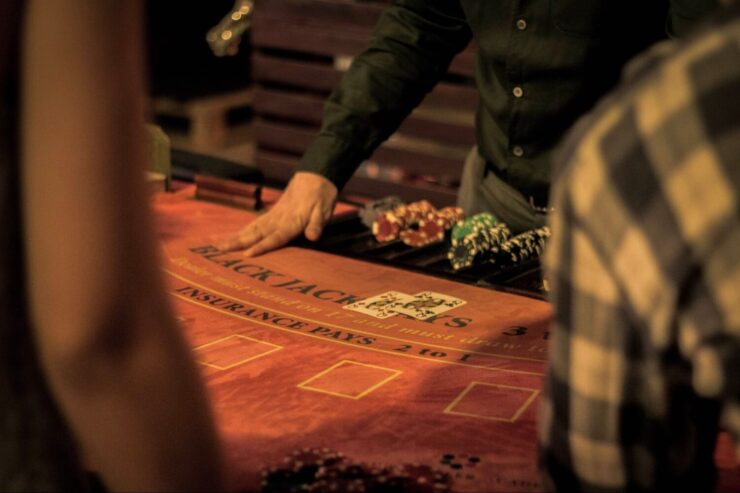
Notable cases, such as those involving high-profile poker players or passionate gamblers, have shed light on the complexities of suing a casino for a ban. The outcomes of these cases vary, creating a mosaic of legal perspectives. For instance, the Phil Ivey case against Crockfords Casino in London unfolded a protracted legal battle, culminating in a victory for the poker player. On the flip side, instances where patrons claimed bans due to perceived negligence have presented a diverse range of outcomes.
Legal perspectives in these cases often hinge on the specifics of each situation. Courts weigh factors such as the casino’s responsibility in recognizing signs of problematic gambling behavior and the role of responsible gaming initiatives. The notion that a casino should be vigilant in identifying and addressing potential issues related to excessive gambling comes to the forefront.
Responsible gaming emerges as a pivotal element in legal arguments. Cases often revolve around casino bans and legal actions. Hether the casino fulfilled its duty to implement and uphold responsible gaming policies. The discussion extends beyond individual rights, emphasizing the shared responsibility between patrons and casinos to foster a gaming environment that prioritizes safety and well-being.
Challenges in Suing Casinos for Imposed Bans
Venturing into the realm of legal action against casinos for imposed bans brings forth a landscape riddled with challenges and limitations. Individuals seeking recourse encounter hurdles that add layers of complexity to their pursuit of justice.
One significant challenge lies in the burden of proof. To establish a compelling case, individuals must provide concrete evidence supporting their claim of an unjust casino ban. This can prove to be a formidable task, requiring a meticulous presentation of facts and circumstances surrounding the ban. Casinos, armed with legal defenses, often scrutinize the legitimacy of these claims, creating a battleground where the burden of proof can be arduous to fulfill.
Legal limitations also come into play. Casinos wield a range of defenses, including the right to refuse service and maintain a secure gaming environment. Courts often weigh these defenses against the individual’s claim, considering the broader legal framework within which casinos operate. This intricate balance between individual rights and the casino’s prerogatives poses a challenge for those seeking legal redress.
Moreover, the costs associated with pursuing legal action against a casino can be substantial. Individuals must grapple with legal fees, potential court expenses, and the possibility of a protracted legal battle. The financial burden, coupled with the inherent uncertainties in such cases, adds another layer of complexity, deterring some from embarking on the legal journey.
Understanding the Emotional Toll: Banned from the Casino Experience
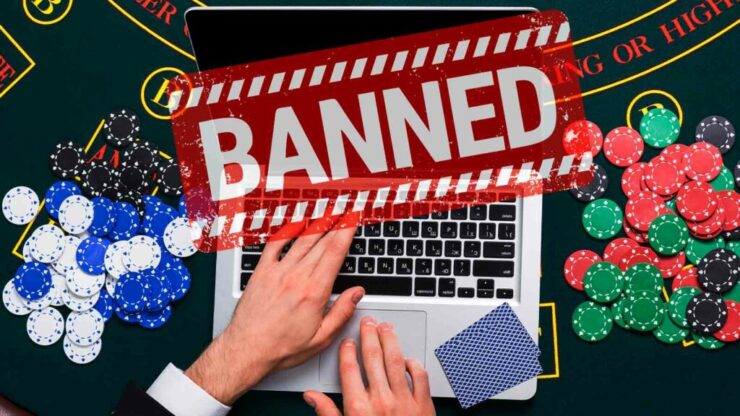
The profound impact on individuals goes beyond the surface, weaving a complex tapestry of emotions as they grapple with the ramifications of being denied entry to a space laden with memories, excitement, and the allure of potential winnings.
A pivotal emotional dimension to consider is the profound sense of loss and isolation experienced by those subjected to a casino ban. Far more than a mere gambling venue, for many individuals, a casino represents a social haven—a place where friendships are solidified, celebrations find their stage, and a vibrant sense of community flourishes. A ban abruptly severs these significant connections, thrusting individuals into a void that extends beyond the realms of recreation and social interaction.
The disruption caused by a casino ban transcends the individual and extends to the broader community dynamic within these establishments. The interconnectedness of patrons, staff, and the overall ambiance contributes to the sense of belonging that a casino cultivates. When an individual is banned, this delicate web is torn asunder, impacting not only the banned individual but also those who shared moments of camaraderie and joy with them.
Furthermore, the stigma intertwined with the act of being banned amplifies the emotional toll on individuals. The visibility of a ban, whether through public notification or enforced exclusion, intensifies feelings of embarrassment, shame, and frustration. The social repercussions can be profound, as the individual may grapple with judgment from peers, acquaintances, or even strangers who witness their exclusion from a place that holds cultural and recreational significance.
Exploring Alternatives and Recourse for Banned Casino Patrons
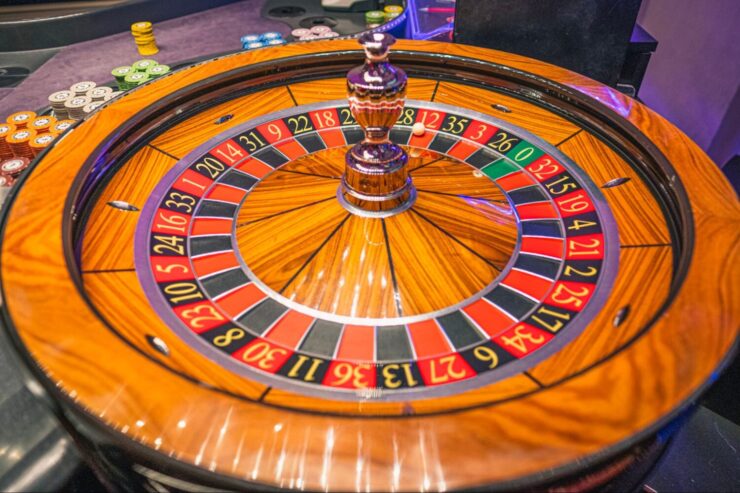
When faced with the unwelcome prospect of being banned from a casino, individuals have avenues beyond legal action to seek recourse and resolution.
Gaming commissions play a pivotal role in overseeing casino operations. Individuals aggrieved by a ban can turn to these regulatory bodies, which are tasked with ensuring fair and responsible gaming practices. Filing a complaint with the gaming commission triggers an investigation into the circumstances surrounding the ban. This external oversight provides a channel for impartial evaluation and intervention, potentially leading to a resolution without resorting to legal proceedings.
Many casinos have established dispute resolution mechanisms internally. These processes are designed to address patron concerns, including those related to bans. By engaging with the casino’s designated dispute resolution channels, individuals can present their case for review. This internal avenue allows for direct communication with the casino, fostering the possibility of finding common ground and reaching an amicable resolution.
Some establishments actively work towards cultivating a safe and enjoyable gaming environment. By actively participating in discussions with responsible gaming representatives, individuals may find avenues for resolving issues related to bans. This collaborative approach emphasizes the shared commitment to a secure gaming atmosphere.
Navigating the Complexities of Casino Bans and Legal Dynamics
Summarizing, individuals confronted with bans face challenges in presenting a compelling case, with the burden of proof and legal costs adding layers of complexity. However, alternatives such as engaging gaming commissions and internal dispute resolution mechanisms offer avenues for resolution without resorting to legal battles.
The future trends in this landscape suggest a continuous evolution. Gaming commissions and regulatory bodies are likely to play an increasingly crucial role in overseeing fair practices, influencing how bans are imposed and addressed. Responsible gaming initiatives are expected to gain prominence, emphasizing a shared commitment to a secure gaming environment.
The feasibility of suing a casino for a ban remains contingent on various factors. While legal action is an option, the complexities involved underscore the importance of considering alternative avenues for resolution. As the landscape evolves, finding a balance between individual rights and casino prerogatives becomes paramount in shaping the future dynamics of casino bans and legal actions.

